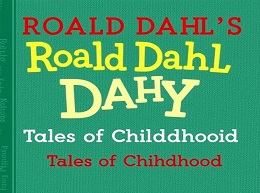I Know Why the Caged Bird Sings

Exploring Resilience and Identity in "I Know Why the Caged Bird Sings"
Maya Angelou's "I Know Why the Caged Bird Sings" is a compelling and poignant memoir that captures the complexities of growing up as a Black girl in the racially segregated American South. Through rich prose and vivid storytelling, Angelou delves into themes of identity, resilience, trauma, and liberation. This review provides an in-depth look at the memoir's key themes, narrative style, and lasting impact, offering readers a comprehensive understanding of why this work remains a literary classic.
Angelou's Unique Narrative Style
Maya Angelou's narrative style in "I Know Why the Caged Bird Sings" is both lyrical and raw, combining the precision of a poet with the candor of a memoirist. Her use of vivid imagery and evocative language paints a detailed picture of her experiences, making the reader feel as though they are right there with her.
Example: The Beauty of Rural Stamps, Arkansas
Angelou describes her grandmother’s store in Stamps, Arkansas, with such vivid detail that the sights, sounds, and smells come alive on the page. This store becomes a central hub in her childhood, symbolizing both safety and the limitations imposed by racial segregation.
The Role of Storytelling in Healing
Storytelling is not just a way for Angelou to recount her past; it is also a means of healing. By articulating her traumas and triumphs, she reclaims her voice and power. This act of storytelling transforms her personal pain into a universal narrative of resilience and hope.
Example: Overcoming Trauma through Writing
After being sexually abused by her mother's boyfriend, Angelou falls silent, believing that her words have the power to harm. It is through the encouragement of Mrs. Bertha Flowers, a wise and kind teacher, that she rediscovers the power of language and storytelling as a form of personal liberation.
Navigating a Racially Divided World
Angelou's memoir provides a stark portrayal of the systemic racism that permeated every aspect of life in the South. From the explicit segregation laws to the subtle yet pervasive discrimination, she navigates a world where her race dictates her experiences and opportunities.
Example: The Visit to the Dentist
One of the most harrowing examples of racial prejudice in the book is the incident with the dentist in Stamps. Despite being in excruciating pain, Maya is refused treatment by a white dentist who crudely declares he would rather put his hand in a dog's mouth than treat a Black patient. This incident profoundly impacts young Maya, reinforcing the harsh realities of racism.
The Quest for Identity and Self-Worth
Throughout the memoir, Angelou grapples with her sense of identity and self-worth. As a young Black girl, she is bombarded with messages of inferiority, yet she also finds strength in her community and heritage.
Example: The Easter Recitation
A pivotal moment in Angelou's quest for self-worth occurs during her Easter recitation at church. Initially filled with dread and self-consciousness, she ultimately finds confidence in her ability to speak and be heard, marking a significant step in her journey towards self-acceptance.
Overcoming Personal Trauma
Angelou's childhood is marked by several traumatic experiences, including sexual abuse and the subsequent trial and murder of her abuser. Despite these hardships, she demonstrates remarkable resilience and an unyielding spirit.
Example: The Support of Her Grandmother
One of the key sources of Angelou's resilience is the unwavering support of her grandmother, Momma Henderson. Her grandmother’s strength, wisdom, and faith provide a solid foundation for Maya, helping her to navigate the challenges she faces.
Educational Empowerment
Education plays a critical role in Angelou's empowerment and personal growth. Through reading and learning, she discovers new worlds and possibilities beyond the confines of her immediate environment.
Example: The Influence of Mrs. Bertha Flowers
Mrs. Bertha Flowers introduces Maya to classic literature, poetry, and the power of spoken language. This mentorship ignites a passion for learning and self-expression in Maya, laying the groundwork for her future as a writer and activist.
The Journey to Self-Expression
As Maya grows older, she begins to find her voice and assert her place in the world. This journey is marked by moments of self-discovery, rebellion, and ultimately, liberation.
Example: The High School Graduation Speech
At her high school graduation, Maya is chosen to deliver the commencement speech. Despite the initial excitement, the ceremony is marred by a white politician’s speech that belittles the achievements of the Black students. Maya's determination to deliver her speech with dignity becomes an act of defiance and self-assertion.
Embracing One's Identity
By the end of the memoir, Angelou has come to embrace her identity as a Black woman, recognizing her own strength and the value of her experiences.
Example: The Birth of Her Son
The memoir concludes with the birth of Maya's son, a moment that signifies hope and new beginnings. This experience further solidifies her sense of purpose and responsibility, both as a mother and as an individual with a voice that matters.
Impact on Literature and Society
"I Know Why the Caged Bird Sings" has had a profound impact on literature and society, offering a powerful narrative that resonates with readers across different backgrounds. It has been instrumental in bringing issues of racism, sexual abuse, and identity to the forefront of public discourse.
Example: Influence on Modern Writers
Angelou's work has inspired countless writers and activists who continue to draw from her themes of resilience, justice, and the transformative power of storytelling. Her ability to articulate personal and collective struggles with grace and strength has made her a revered figure in both literature and civil rights.
Enduring Relevance
The themes explored in Angelou’s memoir remain relevant today, as societies around the world continue to grapple with issues of racial inequality, gender discrimination, and the search for identity and belonging.
Continued Relevance in Social Movements
In contemporary social movements, such as Black Lives Matter, Angelou’s words continue to inspire and galvanize activists fighting for justice and equality. Her legacy serves as a reminder of the enduring power of the human spirit to overcome adversity and effect change.
A Testament to Human Resilience
"I Know Why the Caged Bird Sings" is more than just a memoir; it is a testament to the resilience of the human spirit. Through her eloquent and powerful storytelling, Maya Angelou offers readers an intimate look into her life, filled with both profound suffering and incredible triumph. Her journey from a young girl silenced by trauma to a powerful voice in literature and activism is an inspiring narrative of courage, hope, and the relentless pursuit of freedom. This memoir remains a timeless reminder of the importance of finding one’s voice and standing up against injustice, making it an essential read for anyone seeking to understand the complexities of the human experience.












